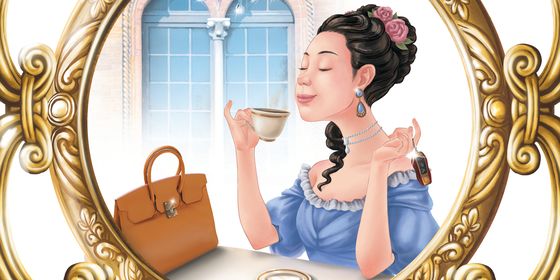Which type of obsessive fan are you?
Fanboys abound, and for some reason this zeitgeisty term is often reserved for fans of Macs. Now, just why anyone would obsess over a computer is anyone’s guess. Professing a preference is understandable, but becoming a bona fide fan? Perhaps I’m just not geeky enough. And, of course, the Chinese have their own slang to describe all manner of obsessive fans too, not to mention their various subsets.
To start we have the 粉丝 (fěnsī, fans), literally “rice noodles”. It can be used to denote a fan of pretty much anything, but as a slangy neologism, it’s more likely to be deployed when talking about pop culture and celebrities rather than, say, those with an interest in the canon of Charles Dickens. Think K-pop stars, Justin Bieber, or David Beckham—all likely to have considerable fensi regardless of their artistic merit.
Next up, we have the 黑粉 (hēifěn, literally “black fans”). Hei fen are not really fans at all, but anti-fans more than anything. These are the folk who will follow a particular celebrity to simply, as the English would say, take the piss out of them—or, troll them, to use the parlance of our times. If familiarity breeds contempt, celebrities are just too bloody familiar. And let’s be honest, it’s good fun. Some of them may be people who find folks such as Bieber or Cyrus ridiculous, funny, or ghastly, rather than contemptible. On occasion, black fans are merely expressing their endearment, albeit in a negative way, like saying they would love to throttle Ryan Gosling for having such poor taste in women while secretly lusting after the Hollywood actor. They can be a hypocritical bunch, too, like those who disseminate, say, nude pictures of Jennifer Lawrence for their pleasure only to denounce her as a wild whore later on.
A more sophisticated relative of the genre are the 高级黑 (gāojíhēi, literally “advanced black fans”). These are more intelligent than your average “black fans”, and their attacks are imbued with a sense of subtlety, irony, or refined sarcasm, satirists of sorts. Think of The Onion or, closer to home, China Daily Show.
Entirely different beasts are the 脑残粉 (nǎocán fěn, literally “brain-damaged fans”. I don’t suppose any of these fans have actual brain damage, though who is to say? The naocan fen are those whose fandom reaches a level of worship and idolatry, so as to suspend any semblance of good judgment or rationality. Brain-damaged fans usually worship Korean TV shows, or at least it is Korean pop culture fans that display the most extreme symptoms of “brain damage”, such as the woman who suffered a miscarriage due to binge watching a marathon of her favorite Korean show, My Love from the Star. Or, there are the girls who break up with their boyfriends for not matching up to a TV show male lead. Some girls have even threatened to kill themselves for not being given unlimited freedom to watch their favorite Korean TV shows.
Whatever their obsession, be it satirical or pathological, China has a wealth of vocabulary to express the fanatic in us all.












